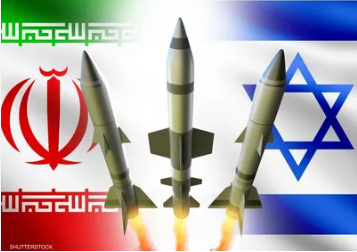The institution also pointed out that it is recommended to welcome the new Hijri year with increased acts of worship, including fasting on the first day of the month of Allah, Al-Muharram — the first month of the Islamic calendar. It cited the hadith of the Prophet ﷺ: “The best fast after Ramadan is in the month of Allah, Muharram, and the best prayer after the obligatory ones is the night prayer” (narrated by Muslim), highlighting the virtues of the month and of fasting in it. The crescent moon of Muharram for the year 1447 AH will be observed after sunset on Wednesday, 29th Dhu al-Hijjah 1446 AH, corresponding to June 25, 2025 CE, to determine the beginning of the new Hijri year according to the Islamic legal (shar’i) sighting. Based on astronomical calculations, it is likely that the first day of Muharram will fall on Thursday, June 26, 2025.
The crescent moon of Muharram for the year 1447 AH will be observed after sunset on Wednesday, 29th Dhu al-Hijjah 1446 AH, corresponding to June 25, 2025 CE, to determine the beginning of the new Hijri year according to the Islamic legal (shar’i) sighting. Based on astronomical calculations, it is likely that the first day of Muharram will fall on Thursday, June 26, 2025.
This day is considered an official public holiday in the country, including for employees in both the public sector and private sector. This year’s holiday coincides with the weekend, giving workers an extended three-day break from Thursday to Saturday (June 26–28), providing many with an opportunity to travel or spend time with family.
Dr. Ali Gomaa, a member of the Senior Scholars Committee at Al-Azhar, explained that the Hijri calendar is based on the lunar cycle, which does not follow the same precise regularity as the solar cycle. He noted that Hijri years vary in length, being either 353, 354, or 355 days, depending on the arrangement of lunar months.
He stressed that astronomical calculations are used only for guidance and cannot be solely relied upon, as certain religious rulings require visual confirmation of the crescent moon. He affirmed the necessity of combining both calculations and sighting to accurately determine the start of months.
Dr. Gomaa also reviewed the history of the Hijri calendar, which was established during the caliphate of Umar ibn Al-Khattab (may Allah be pleased with him), starting from the year of the Prophet’s migration to Medina — a pivotal event in the founding of the Islamic state. Muharram was designated as the first month of the Hijri year because it directly follows the Hajj season. He also addressed the pre-Islamic practice of “Al-Nasī’”, where Arabs would interchange month names to bypass the sanctity of the sacred months in which fighting was prohibited. This was condemned in the Qur'an: “Verily, the postponing (of a sacred month) is an increase in disbelief” [Quran 9:37]. He emphasized that the year in which the Prophet ﷺ performed Hajj saw the lunar calendar restored to its proper order — as it had been on the day Allah created the heavens and the earth.
He also addressed the pre-Islamic practice of “Al-Nasī’”, where Arabs would interchange month names to bypass the sanctity of the sacred months in which fighting was prohibited. This was condemned in the Qur'an: “Verily, the postponing (of a sacred month) is an increase in disbelief” [Quran 9:37]. He emphasized that the year in which the Prophet ﷺ performed Hajj saw the lunar calendar restored to its proper order — as it had been on the day Allah created the heavens and the earth.





